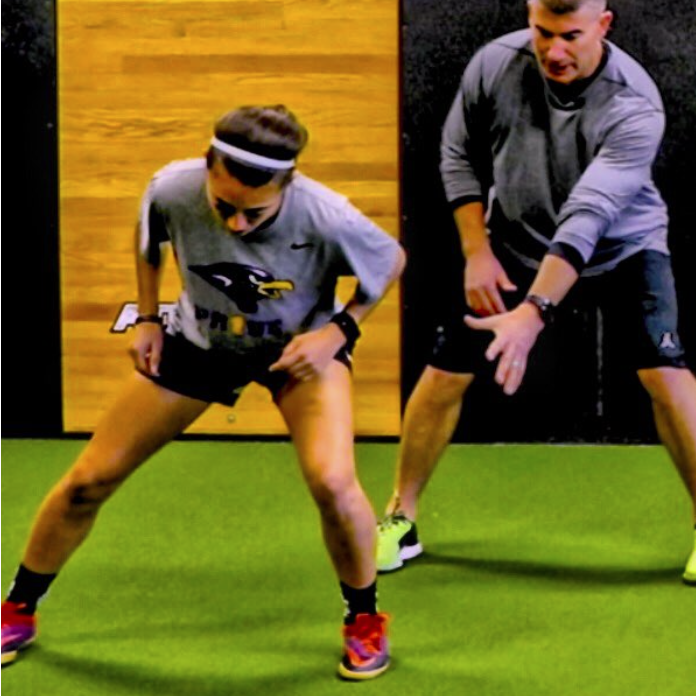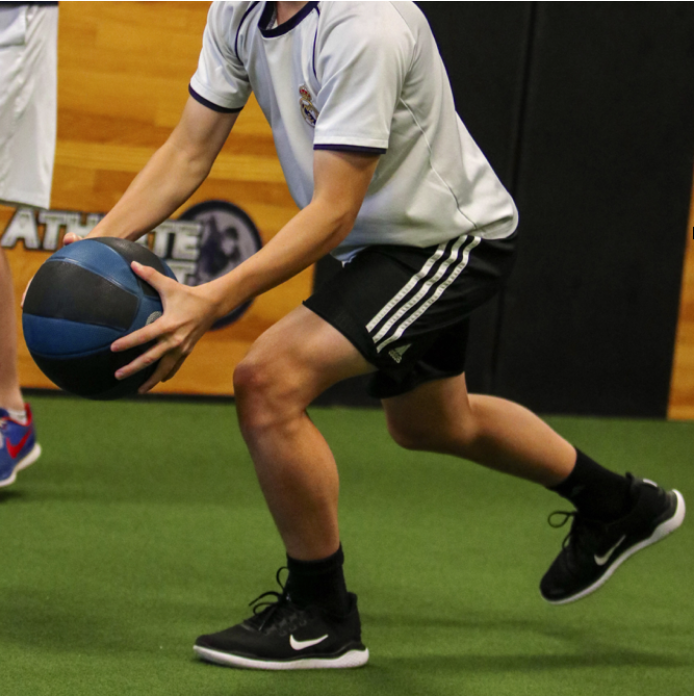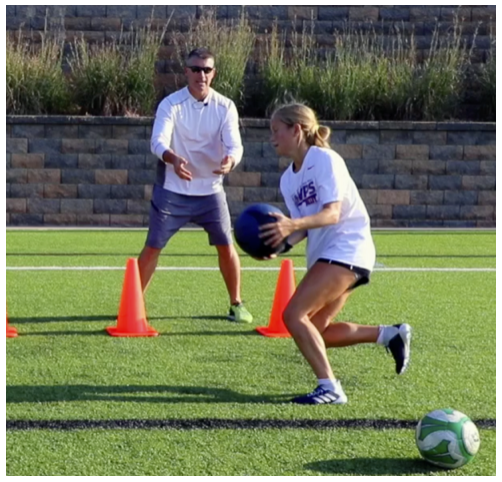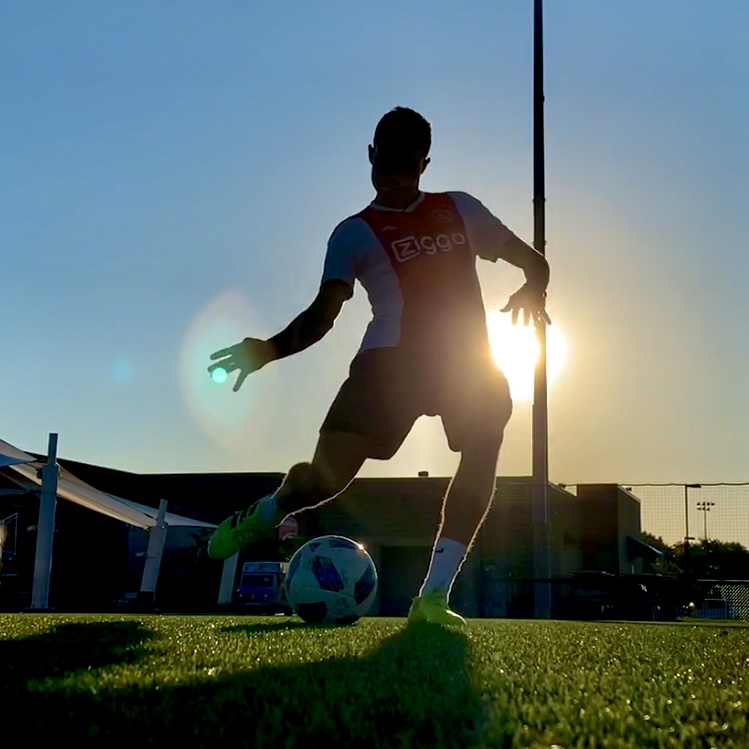
A COACHES JOURNEY
This section is dedicated to the developmental path of a coach. From the first time we discovered an interest in coaching, through the experiences that shaped our understanding, to the ultimate mastery of our craft, every coaches journey is different. Looking back, I have come to realize that there are key steps we must take to become a masterful coach. In the space below, I will try to organize my thoughts on the process of mastering the art of coaching.
To master anything, (sport, teaching, business, art, etc.) takes 3 things...
- Deep, passionate interest (allowing you to keep going when others become satisfied)
- Mentors (those who support, develop and challenge your knowledge and skill)
- Sense of purpose (a feeling that what you do matters, to you and to others)
First we must know WHAT it is that we are interested in...and to be honest, it's often not what you think. This interest has to be more than just the sport itself. Often times, it's something deep below the surface that calls to you, piques your curiosity, and allows you to work longer and harder than others...because you love it.
But being interested is not enough. You also need to develop both the knowledge and the skill through years of coaching. And these two qualities are not the same. Knowledge is understanding the answer, but skill is being able to teach in ways that others can quickly find success.
And finally, with a passionate interest and a deep understanding of your work, you must also feel that your work brings a sense of purpose to your life. This is more than just having fun, it's the satisfaction that comes from seeing the joy your work brings to the lives of others.
It's a lifelong journey. My journey is unlike anyone else I know, and it has led me down roads I never thought I would travel. But the ability to remain interested, while I accumulate new skills and understanding has been the foundation. Constant tinkering and questioning has kept me innovating. Willing to listen and learn from my athletes has proven me right (and wrong). Trying new things, failing, rethinking, reworking and then refining the work has led me to a style of training that is unlike any other...my own unique niche in the system.

This section is dedicated to the journey we take in our development as a coach. And to be honest, it's quite similar to the developmental path we will travel down with our players. It's vital to understand that both journeys follow the same path, the same rules, and ultimately lead us to the same place...a feeling of purpose, and a passionate drive towards finding our unique place in the system as we master our craft.
JOURNEY TOWARDS MASTERFUL COACHING
Click on the gray boxes below to read deeper into my thoughts on pursuing coaching mastery...

My Thoughts on Mastery...
The greatest coaches (and athletes) I have worked with—the ones that seemed to reach a level of mastery, all seemed to have a few things in common.
- A passion or seriousness for training & development of skills
- An inquisitive nature, desire to learn or understand deeply
- Someone that inspired, motivated and guided their learning
- A unique skill or ability that set them apart, made them different
- The ability to focus, deliberately on an individual aspect for hours
- A desire to discover creative ways to develop/showcase their talents
- A strong sense of who they are, and who they are not
Was it nature or nurture, genetics or hard work that elevated them to a level beyond their peers?
I think it was a little of both. They had a unique skill set (genetics) that gave them a head start. Some were just fast, some extremely coordinated, some were great communicators, some could understand tactical aspects on a higher level than their peers, etc.
But, I have worked with many people that were far more genetically gifted, but never reached a level of mastery. Why…? There were specific factors that all came together in just the right moment. And then something just clicked for them. Some call it luck, some call it fate, but in one moment, the environment they found themselves in suddenly aligned perfectly with their unique talents. And when they noticed this, they didn't hesitate...they took full advantage.
At some point, each of these people had the ability to fight through the bad sessions (because their love of the work was far greater than success or failure), which meant that they didn’t fear temporary failures, frustration or discomfort during training…they embraced it, seeking to overcome adversity and finding excitement in the journey.
They also found a mentor that pushed them harder.
Because they didn’t fear the training, and were deeply passionate about the developmental process, they got more repetitions, more critical feedback, and more intense efforts than others. This mentor seemed to enjoy their curiosity. Together they explored small nuances of the game, in ways that peaked their interest and drove each of their motivations to succeed even higher. They started off mimicking great role models, but then sought out ways to take it a step further, finding their own unique way.
This coach-player (mentor-apprentice) dynamic occasionally works both ways, and when it does something special happens.
When a player reaches a level of comfort with the coach in which they can begin to questions concepts on a deeper level, it sometimes exposes some cracks in the coaches understanding of the concept. If the coach can set their ego aside, and open their mind to new possibilities by looking at the concept from a different perspective, new ideas begin to emerge.
Together, they explore these ideas, testing new theories and expanding their knowledge and skill simultaneously. Eventually they learn more deeply. Sometimes solidifying original theories, sometimes disproving these theories and creating a fertile ground for new ideas and theories to take root.
Over time, with enough experimentation, refined philosophies emerge. And each becomes more confident in who they are and what they believe. They have explored ideas from every angle, experimented with techniques, observed the execution under different tactical options, and can quickly make skillful adjustments in creative new ways.
They have reached a new level of mastery. But the truly great ones don’t see this as mastery. They are so passionate about the journey of discovery, that they continue to push the creative learning process.
Never wanting the journey to end, they continue to expand their thought process and innovation techniques. Their skill and efficiency grows and they quickly identify and adjust in real time. The outside world sees them as a natural born talent, but what they don’t see is the relentless seeker that lies under the surface.
ACCEPTING YOUR CALLING
In his book Mastery, Robert Greene referred to a calling as an inner voice or force within you, pulling you in a direction where you ultimately find purpose. He states, "If you allow yourself to to learn who you really are by paying attention to the voice and force within you, then you can become what you were fated to become."
Looking back at my career over the last 3 decades, I have learned that who you are fated to become is often not what you anticipated...but if you listen to the voice it can lead you to finding your passion and purpose in life.

What's your passion? Have you found your calling in life? Are you living a life of purpose?
There's a lot of stress and confusion associated with those questions. And I think it's because we go about discovering our passion, calling and purpose in the wrong way.
From an early age we were asked what we wanted to be when we grow up? What our goals are? What position we wanted to play? These questions forced us to come up with an answer before we had the experience, knowledge or skill to know if we were really interested in pursuing it. Over time, we begin to define ourselves by our title...assuming the roles and responsibilities set out in our job description.
It’s deeper than a job or even a career, it’s a life long journey. It’s not the title, it’s much more than that.
To become a master of your work, a leader in the industry, you have to have a passion for what you do. You need to find something about the job that inspires you.
A little wiggle room within the roles and responsibilities that allows you can create something special. Something about what you do that triggers something deep inside you and motivates you to give everything you have.
This is important…
It’s so hard for me to tell people what I do, because I know they won’t understand it. Because it’s not a job. There is no title that fits perfectly., I can’t say ‘accountant’ or ‘doctor’ or ‘bartender’ because I feel so strongly that my ‘job’ is so much more than can be put into a title, and to understand what I do, you would have to see inside my soul.
For example…I work primarily with soccer players. But would never call myself a ‘soccer coach’ or even a ‘soccer trainer.’ I didn't grow up loving, or even playing the sport of soccer. Even to this day I would not call myself a soccer fan. So you might be thinking...I thought you said you have to be passionate about what you do?
And this is my point...Even though I might not love the sport of soccer. Working with soccer players allows me to explore so many different interests and expand on my unique skills and abilities. I would have a difficult time finding a more perfect fit.
I have a strong desire to build confidence through athletic movement skill. I love to observe and develop movement strategies that enhance athleticism. The level of coordination and movement skill required to manipulate a ball at your feet in a reactive, chaotic environment challenges my creativity and coaching skill.
In training soccer skill, I find ways to weave in my love for speed and agility training. With an innovative approach to skill development I get to explore creative new ways to build confidence and develop athleticism. Soccer allows me to explore all of my passions, using all of my skills, in ways that challenge me to continue to learn, innovate and develop creative new ways to improve speed of play.
The worst feeling I have when I am describing what I do, and they say…”Oh, so your a personal trainer.” I immediately get defensive, and tell them that I am not a personal trainer...
I work with young athletes and young coaches, in developmental stages of their career. We explore their interests, using sports performance as a vehicle to develop skills and abilities, confidence, resiliency, work ethic and find unique ways their skills and abilities can be used to impact the game.
And they say, “So your a coach?”
Coach might come closer, but still doesn’t scratch the surface of how I see myself. There is no title or definition I could give them that would truly express the amount of effort and energy I put into the physiological, psychological and biomechanical aspects of skill expression in sport, while also finding the most optimal learning style for the athlete to efficiently master the foundational movement strategies, and creatively weave them together in a skillful expression of athleticism in competitive play.
The world wants to place everything into a simple box to help them understand what it is you do. Otherwise things become complicated and require too much brain power to understand. We can't conform to the box, we have to create a new box, with our rules and work within that realm until there are words and descriptions to accurately describe what you do.
